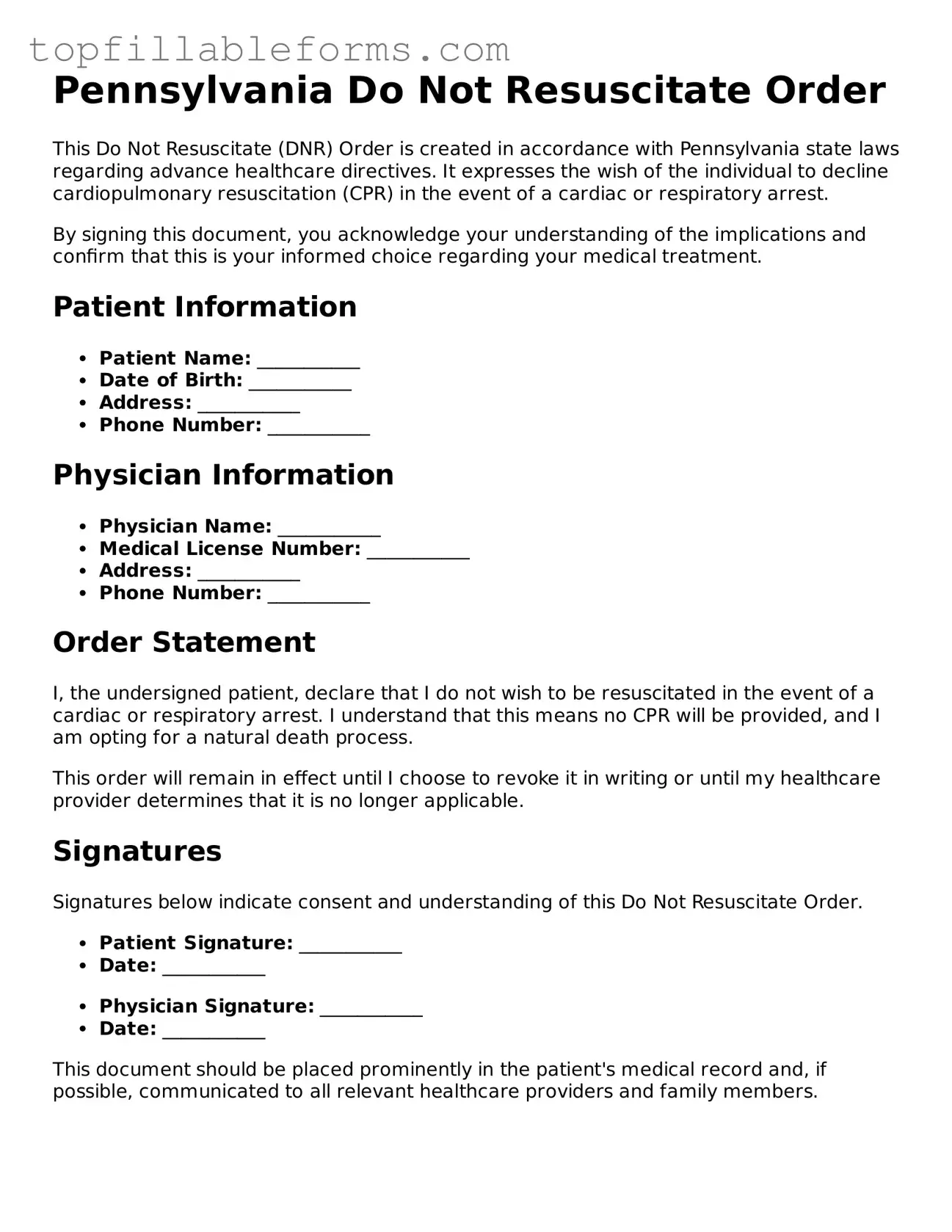Attorney-Verified Do Not Resuscitate Order Template for Pennsylvania
A Pennsylvania Do Not Resuscitate Order (DNR) form is a legal document that allows individuals to refuse cardiopulmonary resuscitation (CPR) in the event of cardiac arrest. This form ensures that medical personnel respect a patient's wishes regarding life-sustaining treatment. Understanding the implications of a DNR is crucial for making informed healthcare decisions.
Open Do Not Resuscitate Order Editor Here

Attorney-Verified Do Not Resuscitate Order Template for Pennsylvania
Open Do Not Resuscitate Order Editor Here
Finish the form now and be done
Finish your Do Not Resuscitate Order online by editing, saving, and downloading fast.
Open Do Not Resuscitate Order Editor Here
or
▼ PDF File
